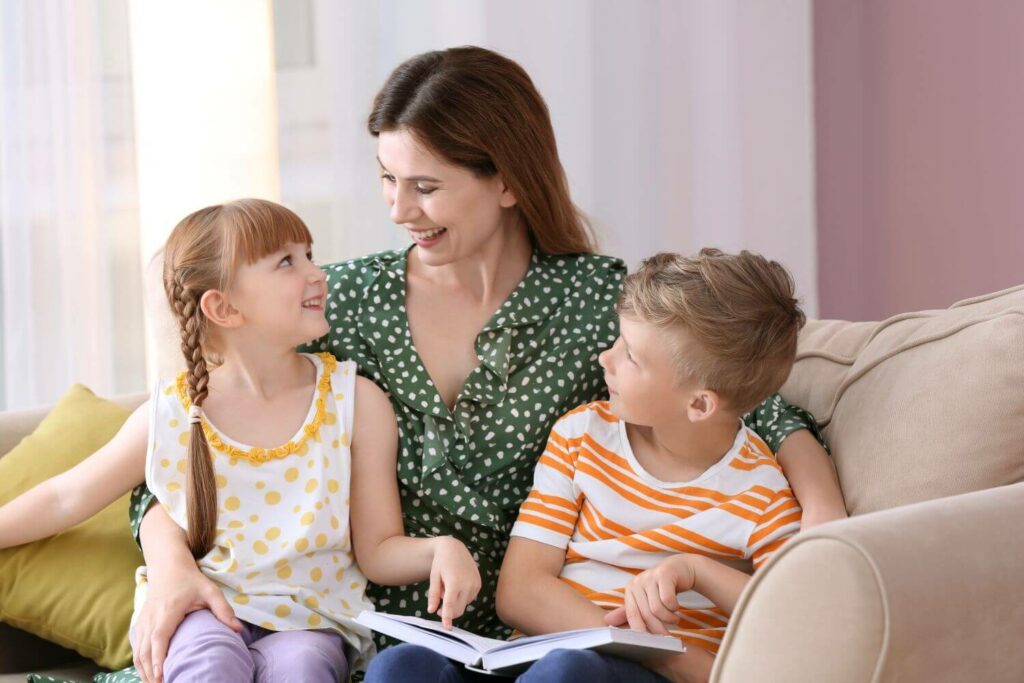When it comes to teaching kids, we must remember that it’s not just about the things they learn in school, but the real innate human traits that will help them in so many areas of their lives. We want to give our kids the things that we didn’t have, and if you were a child that didn’t have one of these three character traits: kindness, courage, or being a good friend, these are things that you can teach in your own way. Let’s show you the basics of all three.
Kindness
Kindness is important for kids because it helps them to understand the concept of what being nice really is, and it’s important to note that kindness is not the same as being a Good Samaritan that people take advantage of. Kindness needs to be on par with assertiveness. We need to show our kids it’s important to be kind, but not to the point where they are being taken advantage of, which happens so much in life.
Here are some effective ways to teach your kids kindness:
- Ensuring your children put themselves in other people’s shoes.
- Understanding the impact of words, specifically kind words, kind facial expressions, and actions.
- Teaching good manners.
- Modeling the behavior by being kind to your child, especially when you’re frustrated or tired.
Remember, kindness is a contagious thing, and there will be times when our children are being kind but have been taken advantage of, but the important thing to remember is that this is what will spark doubt in the other child’s mind. Ultimately, being mean is not going to get them far in life, even though they think it gets them what they want at the time. Kindness is definitely a practice that involves the “long game.”
Courage
Being brave is going to span so many parts of their lives. Courage is similar to being assertive, but courage is not just about being brave in the face of something like danger, but about letting them be comfortable with being uncomfortable.
Here are some effective ways to teach your kids to be brave:
- Treat them like they are already brave, which means you don’t let them believe that courage is something they don’t have yet.
- Let them fail, which is critical because nothing in life is perfect. Being rejected or failing means that you’ve done something courageous. Rather than your child thinking that failure is the sign they should do something, let them understand that being brave is about dusting themselves off and trying again, without worrying about perfection. So they will have a growth model that will see them through their entire lives, not just their childhood.
- Letting them be brave in their thoughts, especially when it comes to deciding if they should be friends with certain people. Questioning is an essential skill our children should have and there are so many times they should not feel inhibited to question and thinking outside the box. Courage in thought is about pushing against these preconceived notions which we must encourage.
Teaching Our Children to Be Great Friends
A great friend is someone that we will remember forever. When our children are so young, the children they spend time with will push boundaries and say things that could be perceived as hurtful. The notions of kindness and courage are both critical aspects of being a great friend. Being a great friend, in so many ways, is simple: it’s about being trustworthy, spending quality time, and helping people out.
We can teach our children the positive skills of being a good friend in some of the following ways:
- Tell them what good friends actually do, like being kind, not saying horrible things and helping when they are sad.
- Practice being a good friend and talk about scenarios where your child may be upset because their friend was not being kind to them.
- Encourage them to spend time with people who are good examples of friendliness.
- Letting them spend time with all different types of people, which will help them to start weeding out the good people from those they perceive as bad or could be more friendly.
These are three important qualities that will help us all, which is why it’s so important to remember that you are the model for these. As parents, we have to be kind, courageous, and great friends, and as our children see us model these, this serves as little reminders that they can benefit from working towards these outstanding attitudes.
As children can encounter others who are selfish, mean, and unhelpful, we still need to remember that it’s not about caving in and an “if you can’t beat them, join them” attitude, but about having the strength and fortitude to have these three skills in the face of adversity and practicing them.



